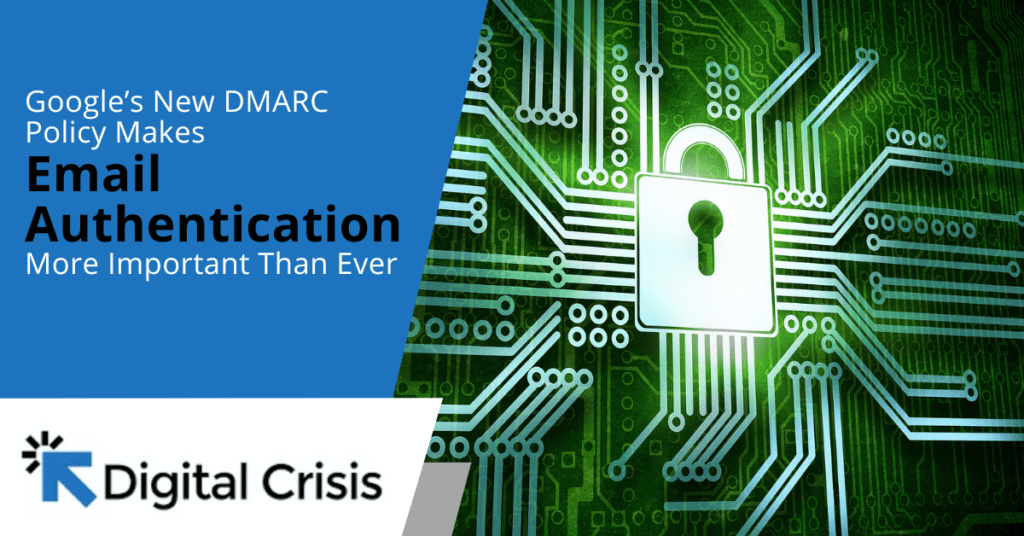
In the digital age, email has become an indispensable tool for communication, both personally and professionally. However, with the convenience of email comes the risk of cyber threats such as phishing, spoofing, and email fraud.
To combat these threats, companies have implemented various email authentication protocols, with DMARC (Domain-based Message Authentication, Reporting, and Conformance) being one of the most effective. Recently, Google announced changes to its DMARC policy, emphasizing the criticality of email authentication in safeguarding users against malicious attacks.
DMARC is an email authentication protocol that helps protect email senders and recipients from domain spoofing and phishing attacks. It works by allowing senders to publish policies on how their emails should be handled if they fail authentication checks.
These policies instruct email providers on whether to deliver, quarantine, or reject emails that fail authentication, providing an additional layer of security against fraudulent emails.
DMARC relies on existing authentication mechanisms such as SPF (Sender Policy Framework) and DKIM (DomainKeys Identified Mail) to verify the authenticity of emails. SPF verifies that the sending server is authorized to send emails on behalf of a specific domain, while DKIM ensures that the email content has not been tampered with during transit.
DMARC builds upon these protocols by enabling domain owners to specify how their emails should be handled if they fail these checks.
Google, being one of the largest email service providers globally, plays a significant role in shaping email security standards. In response to the escalating threat landscape, Google announced changes to its DMARC policy to enhance email security for its users. These changes include stricter enforcement of DMARC policies and increased scrutiny of emails sent without proper authentication.
The updated DMARC policy by Google has a profound impact on email senders, particularly businesses and organizations that rely heavily on email communication. Failure to comply with DMARC authentication standards may result in emails being marked as spam or even rejected outright by Google’s email servers.
This could lead to significant deliverability issues and damage to sender reputation, affecting the effectiveness of email marketing campaigns and legitimate communications.
Email fraud, including phishing and spoofing attacks, remains a prevalent threat in cyberspace. By implementing robust email authentication measures like DMARC, organizations can significantly reduce the risk of falling victim to such attacks.
DMARC helps ensure that emails originating from a domain are legitimate, thereby mitigating the possibility of unauthorized entities impersonating the organization and deceiving recipients.
Maintaining a strong brand reputation is paramount for businesses in today’s competitive landscape. Email authentication not only safeguards against fraudulent activities but also protects the brand’s integrity by ensuring that only authorized communications are delivered to customers and stakeholders. By demonstrating a commitment to email security, organizations can enhance trust and credibility among their audience.
As cyber threats continue to evolve, so too must email security measures. Google’s proactive approach to enhancing its DMARC policy underscores the importance of staying ahead of emerging threats and adopting robust authentication standards. In the future, we can expect further advancements in email authentication technology to counteract increasingly sophisticated cyber attacks.
Achieving comprehensive email security requires collaboration among email service providers, domain owners, and cybersecurity experts. Educating stakeholders about the importance of email authentication and providing resources to implement best practices are essential steps in fortifying the email ecosystem against malicious actors. By working together, we can create a safer online environment for email communication.
Google’s new DMARC policy highlights the critical role of email authentication in mitigating cyber threats and protecting users from malicious activities. As email continues to be a primary communication channel for individuals and businesses alike, ensuring its security is paramount.
By adhering to industry-standard authentication protocols like DMARC, organizations can enhance their email security posture and safeguard their brand reputation. As a leading provider of cybersecurity solutions, Digital Crisis is committed to helping businesses implement robust email authentication measures to combat evolving threats and secure their digital assets. Contact us for expert guidance today.